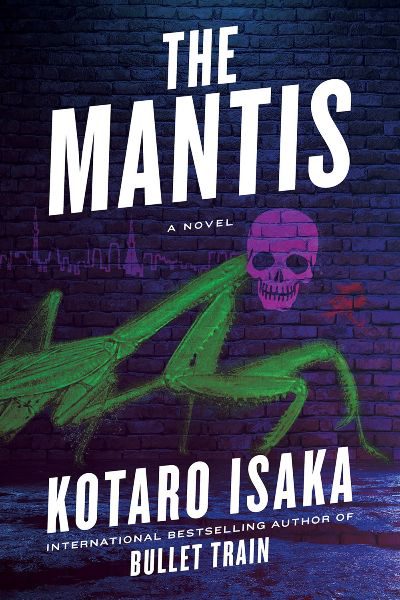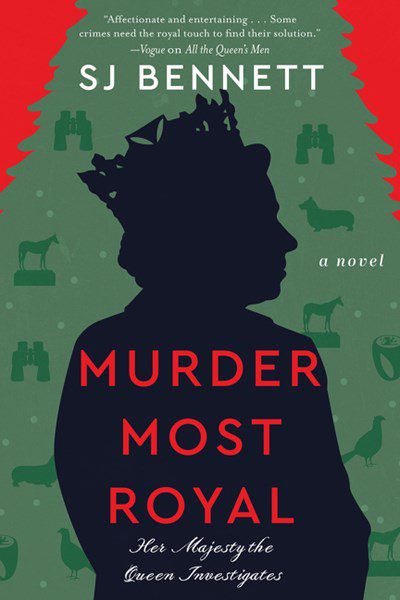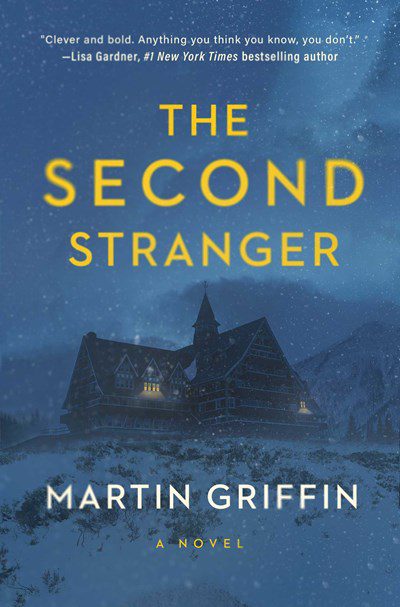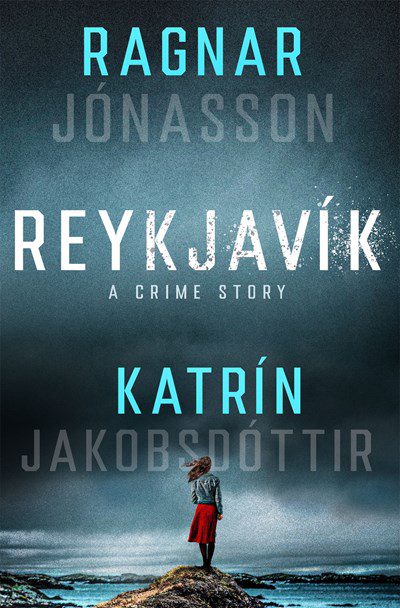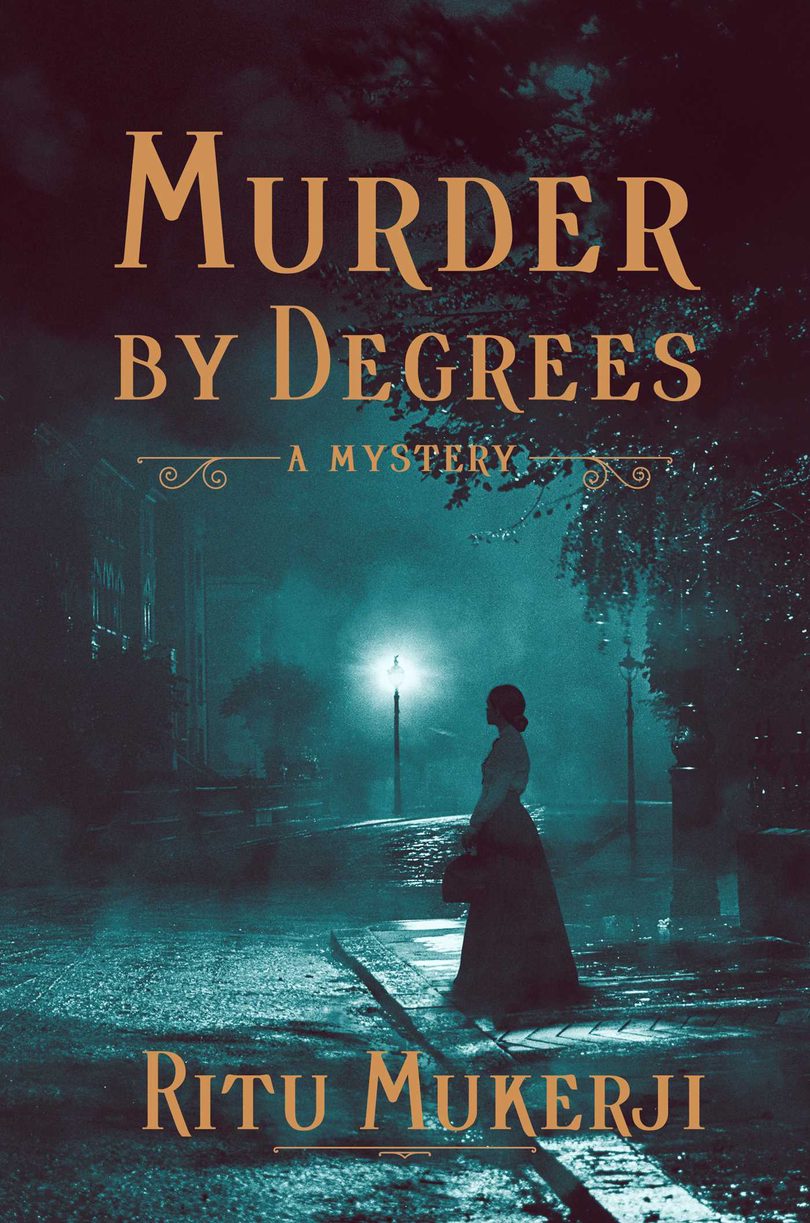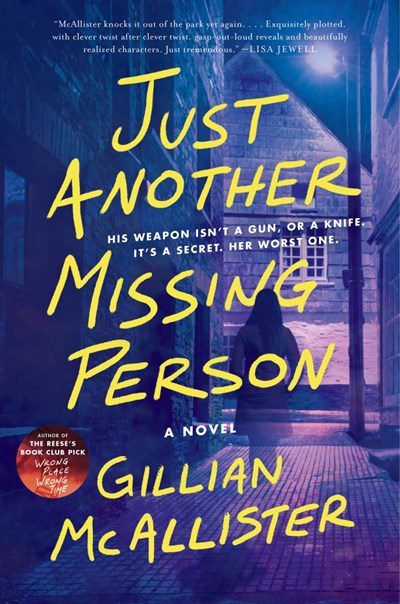Isaka’s third book in this semi-series—the first, Bullet Train, was made into a popular film featuring Brad Pitt and Sandra Bullock—takes a bit of a departure. Yes, we’re focused on a genius hit man, in this case Kabuto. He’s beholden to the Doctor, an actual doctor who hilariously uses medical terminology as code to describe the hits. They’re oftentimes bizarre, wildly creative, or just plain funny. But Kabuto is over it. He wants out, except the Doctor isn’t ready to lose such talent and forces Kabuko to pay his way out, taking down some other professional assassins as his swan song. But for all the time we spend in Tokyo’s criminal underground, this book is more grounded in Kabuko’s life as a family man with a teen son and a wife, who are convinced his work is in office supplies! Kabuto’s relationship with his wife is uniquely fraught; he keeps a journal of phrases useful to appease her, while his son is remarkably loving towards his browbeaten dad. Featuring a professional killer who cringes because he ate the last of his wife’s favorite pudding, this book is poignant, sweet, and full of surprises. No need to read the earlier novels to appreciate this title.
Brian Kenney
When Queen Elizabeth II died this past September, some were grief-struck, others in shock, while many merely shrugged. I, however, had one thought: what would this mean for Bennett’s delightful Her Majesty the Queen Investigates series? I’m pleased to say that the third book is being released, set over the 2016/2017 holidays, picking up where the second book left off. Since it’s the holidays, the Queen and Prince Philip, along with family and hangers-on, are holed up for six weeks in Sandringham House on the Norfolk coast. As if there isn’t enough to worry about with Brexit and that new American president, a severed hand, wrapped in a plastic bag, washes up on a Norfolk beach. Its one identifying characteristic? A signet ring, although only the Queen recognizes it as belonging to the aristocratic St Cyr family. Between the lying media and the incompetent police, the Queen eventually launches her own investigation, along with the ever trustworthy Assistant Private Secretary Rozie Oshodi. While in previous books the Queen took a directive approach, here she is more actively involved in sussing out the murderer. Luckily for us, Bennett confirms that she plans to write more in the series “as there is still so much of her life to explore.”
An incredibly taut “locked inn” suspense novel that features just a handful of characters over an intense eight hours. We’re in a small hotel in the Scottish Highlands with a blizzard raging. It’s incredibly remote, and the only other sign of life is Porterfell, a prison far in the distance. It’s Remie Yorke’s last night managing the hotel—not that there is that much to manage with just two guests, one of whom has disappeared. In the morning, Remie will be on her way to Chile with no plans to ever return to Scotland. Meanwhile, the hotel grows even more isolated as the roads shut down and phone lines and internet access die. Suddenly a police officer, Don Gaines, appears. Beat-up, he claims to have been in an accident transporting a prisoner from Porterfell—a dangerous prisoner who’s now on the loose. Gaines goes about securing the hotel, when another officer shows up claiming to be Officer Don Gaines. He’s just as convincing, with the appropriate identification. Will the real Donald Gaines please stand up? Lest it seems as though I’m sharing spoilers, be assured that this is just the beginning. There’s plenty more to be revealed in this absolute nail-biter of a thriller.
A classic mystery from Katrín Jakobsdóttir, Iceland’s prime minister, and bestselling Icelandic crime writer Ragnar Jónasson. Back in 1956, a 14-year-old girl, Lara, disappeared without a trace at the end of the summer. She had been working as a maid for a well connected couple who spent summers on Videy, a remote island off the coast from Reykjavík. Eventually, Lara’s disappearance became Iceland’s most infamous unsolved case. On the 30th anniversary of the event, Valur Robertsson—a young, ambitious journalist—takes up the case, publishing a series of articles that imply he has new information, setting the nation on edge. But just when the public expects a revelation, the narrative takes a 180-degree spin, and the threat of violence becomes all too real. While it’s a well-done mystery, Reykjavík also provides tremendous insight into Iceland at a time of change, expasnion, and corruption. Sure to appeal to a broad swath of crime-fiction readers.
Set in post-Civil War Philadelphia, this is historical crime fiction that goes deep into the many strata of society, from recent immigrants to medical students, from the police to the very rich. At its heart is Dr. Lydia Weston, practicing medical doctor and professor at the Women’s Medical College. When Anna Ward, a patient of Lydia’s, is found dead in the Schuylkill River, Lydia refuses to believe she died by suicide. Instead, Lydia manages to become part of the police investigation. Fortunately, Anna kept a diary, and by examining the patient’s writings and her cadaver, Lydia is able to begin to piece together some of what happened. Anna’s story takes us all over the city, displays the antipathy so many had for women doctors, and exposes the risks Lydia took to solve the murder. For readers who love to be transported to another era. Fans of Jacqueline Winspear and Victoria Thompson will love this book.
The third in the Two Rivers series has DI Matthew Venn and colleagues off to the tiny town of Greystone on the Devon coast. While much of Devon is popular as a vacation spot, Greystone’s color palette (gray, grayer, and grayest) combined with the dark, turbulent sea makes for a forbidding destination. To the locals’ delight, Greystone’s only celebrity, Jem Rosco, a famous sailor and adventurer, has returned. He spends his nights in the local pub, where he lets it be known that he’s back in town to meet up with someone special. A former lover? Perhaps. Except Rosco suddenly disappears before we find out, his body found naked, curled up in the bottom of a dinghy that’s anchored in a cove. A cove with a superstitious history. With her usual brilliance, Cleeves balances Venn and Co. as they spread out across the town seeking information while also drilling deeply into the lives of a handful of leading suspects. Personal tensions arise. Matthew’s team members compete with one another. Matthew himself is uncomfortable in Greystone, having spent part of his cult-ridden childhood in the town. And Jonathan, Matthew’s husband, has a secret he’s not ready to share. When this novel ends, it’s with a bang, not a whimper, sure to delight readers of what is one of the very best series being written today.
ou don’t have to struggle to find reviews of Death of an Author, a crime novella written with several sophisticated artificial intelligence (AI) programs. The claim is that 95 percent of the book is computer generated, mostly using ChatGPT, and reviewers are transfixed by the notion that AI can produce anything that halfway functions as fiction. Especially since the AI-produced fiction we already have is pretty miserable. But the real question is: how does it hold up as a mystery, the genre the title clearly lays claim to? Surprisingly well, actually. In no time at all, mystery readers will encounter the tropes that assure them they’re in familiar territory, with enough mild plot developments to keep the pages flipping, if not flying, and language that ranges from the clunky (diction!) to the lovely. Scholar Gus Dupin is invited to the funeral of Canadian literary star Peggy Firmin, “a pioneer of using artificial intelligence to manufacture literary artifacts,” who was murdered in the outskirts of Toronto. While he never met Peggy, Gus has spent the better part of his life writing about her. Her funeral turns out to be an exclusive affair—with some fun walk-ons, like Michael Ondaatje—and feels as though it’s lifted right out of Agatha Christie, if the Dame had access to avatars. And guess who’s the prime suspect? The story moves on, becoming a bit too meta, too smarty pants for this reader. But let’s just agree that it’s fascinating and fun. I reviewed it as an ebook, but the publisher produces primarily audiobooks.
What do we know about lying? That one lie often begets others. That lies find a way of escaping their boundaries. And that knowledge of a lie can give you power over the liar. DCI Julia Day is leading the investigation into the case of a young woman who’s gone missing. A brilliant detective, Julia is slightly suspicious of this case—the pieces don’t quite fit together—when she’s carjacked and forced to agree to lie about the alleged perpetrator. Except the story hardly ends there. As the investigation unravels, more cold cases come alive and more lies are exposed. McAlister brilliantly leads us into the lives of parents, driven mad by grief, and Julia’s own relationship with her daughter, the well-spring of so many falsehoods. Readers will appreciate a police procedural that is deeply embedded in character. That moves adroitly between the lives of cops and civilians. And that explores the difficulty of making sound moral choices. McAlister is the author of Wrong Place Wrong Time, a Reese’s Book Club Pick.
Flower does a magnificent job of opening up the world of mid-19th century Amherst, the Dickinson family, and especially young Emily, who has yet to become the eccentric recluse of her later years. In this volume, Austin and his wife have returned from their wedding trip and moved into the mansion next door to the family home, just in time to welcome their houseguests Ralph Waldo Emerson—who has come to lecture at Amherst College—and his secretary, Luther. Narrated by Emily’s maid Willa Nobel, we’re privy to all the family gossip, while Emily seeks a way to share her writing with Emerson. But the death of young Luther, who’s found in a bed of black-eyed Susans, sets Emily and Willa on a path to satisfy the great Emerson’s questions, quell the vociferous speculation, and clear the Dickinson name. This series is historical crime fiction at its best, balancing insight into the past with a fast-moving investigation into the crime.
A brilliantly taut novella set over Christmas in 1989 England, revisited from the perspective of present-day New York. Ashley Smith is an American college student spending her junior year in London. An orphan, she has no holiday plans, until another student, Emma Chapman—they’re barely friends—invites her to her family’s manor house in the country. For an American, it’s pretty much “cozy Cotswold heaven”: a rambling home filled with cousins and friends, pine boughs and holly, smelly dogs and board games, plenty of alcohol, nightly hikes to the village pub, and absolutely no heat. Much of the narrative comes through Ashley’s diary, which is a real hoot in its Bridget Jones-ness, especially when she’s reporting on Adam, Emma’s supremely handsome brother. Except things start to get weird. A strange, little man is seen lurking on the wooded shortcut to the pub. Then Ashley learns that Adam is suspected of murdering a local girl several months before—but proof is lacking. Despite being short enough to read in one sitting, maybe with a pot of tea at the midpoint, this skillfully constructed work of crime fiction still manages to provide plenty of shock and awe.

